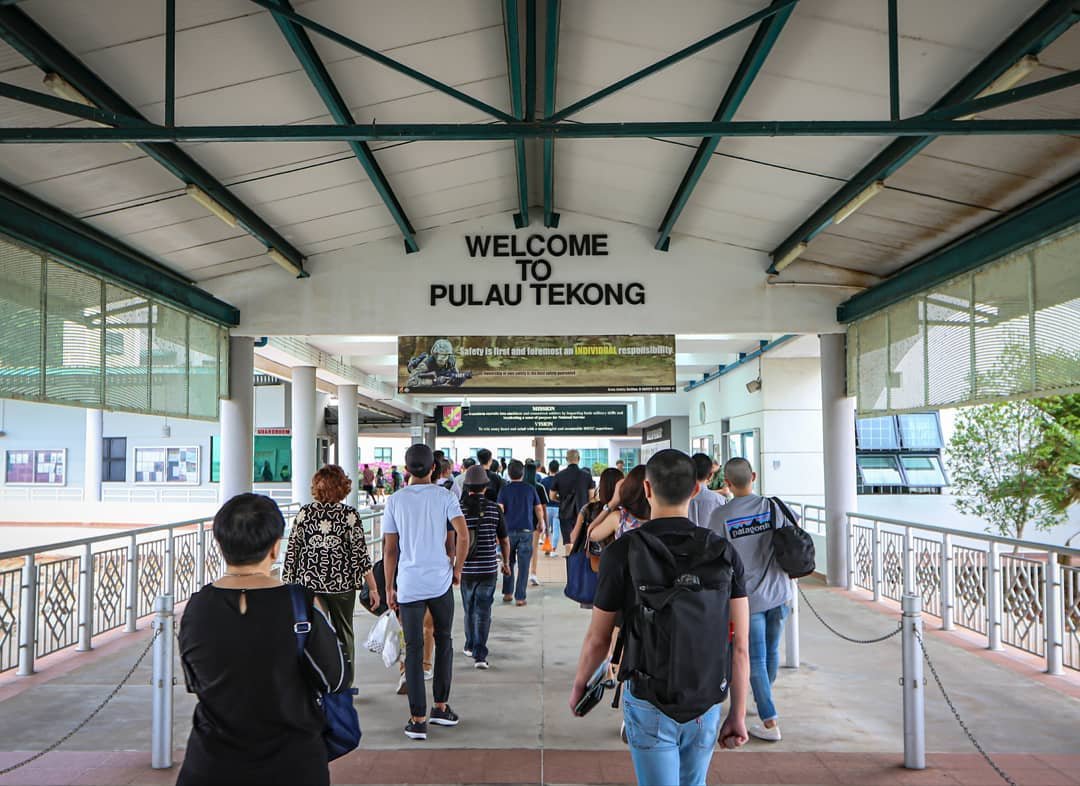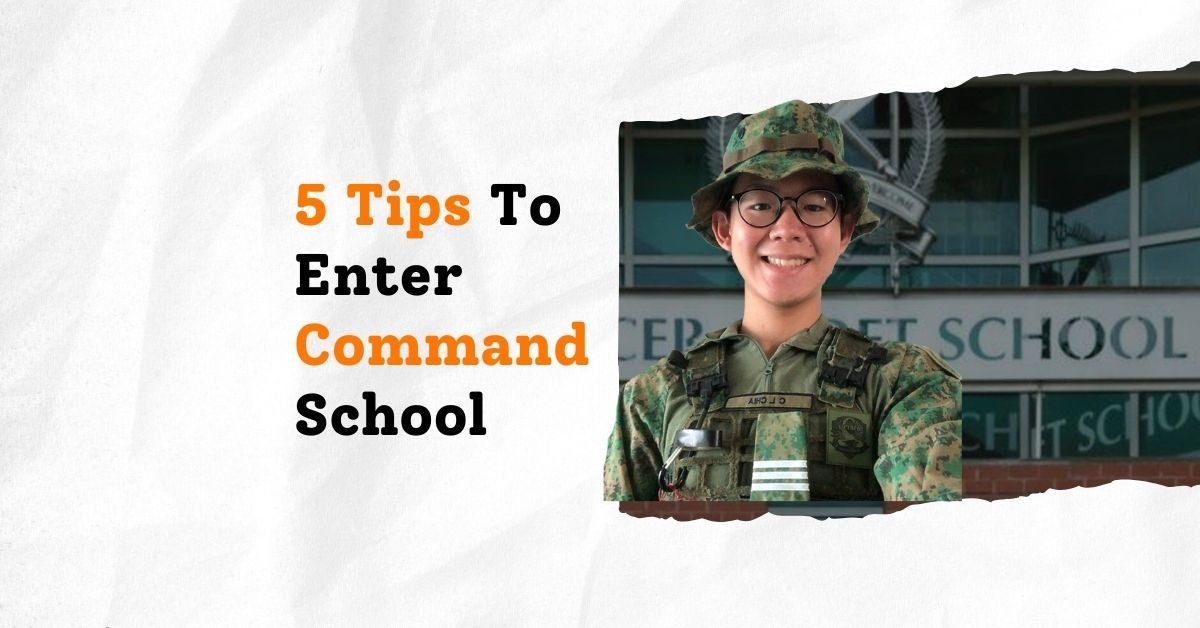
Image: The Singapore Army Facebook
A noisy chatter swept across the corridor outside the main auditorium in the Pulau Tekong camp. I looked around, only to see the parents of the enlistees share their personal moments with their soon-to-be soldiers.
It was close to 11 in the morning, and the new enlistees, myself included, just finished our initial Basic Military Training (BMT) briefing. In the briefing, our doubts were cleared on what to expect from the first phase of our National Service (NS).
Having completed BMT, I’d like to share with you my experiences of transitioning from civilian to soldier, and what you can learn from BMT, serving NS. You may find yourself applying these values to your daily lives.
Jump ahead to
Before NS
“What’s the point of serving NS?” Just a few years back, I often whined when confronting the topic of National Service. I sulked about the reality of graduating from university later than my friends around the world due to my 2-year obligation to NS.
To prepare for such a once-in-a-lifetime opportunity, I had to keep an open mind and not think too much about NS. That would be my first advice to the future soldiers of Singapore.
Focus on doing well in school or build your portfolio, then worry about the army later.
During BMT
Image: Soldiers doing pushups, Basic Military Training Centre
Every Singaporean’s National Service begins with BMT. It is during this phase that adjusting to military life takes place. You may find yourself sleeping and waking up earlier than usual, undertaking multiple physical training (PT) sessions, while having to comply with some minimum standards and expectations.
At the same time, expect to meet new people. Be it your section and platoon mates, or the sergeants and officers. Over the next few months, these will be the same people you will forge strong bonds with.
Besides the future enlistees, this article also goes out to those taking the leap into adulthood. Thus, I won’t go into detail about my experiences in the various high-key events in BMT. There’s another BMT guide about these that you can check out.
Specifically, I’ll elaborate more on the values I acquired during BMT that I believe are transferable and applicable to life outside the army.
Here are 3 things you’ll learn from BMT or NS. Let’s focus on the positives of serving our nation!
1. Respect
Image: Soldiers saluting in the SAF, Basic Military Training Centre Facebook
A general expectation in any military is exhibiting respect to a superior rank. This is done by greeting him (or her) correctly. Such is only possible through learning the Singapore Armed Forces (SAF) rank system.
During the first few days of BMT, I was clueless about how to address my commanders. The ranks on their chests were confusing for me.
In fact, it took me some time to distinguish the platoon sergeants from the regular sergeants, given that both have the same 3SG (Third Sergeant) rank on their uniforms.
Then there exist the other higher SAF ranks, such as the master sergeants and the warrant officers who are addressed as “master” and “Encik” respectively. So many ranks to remember, right?
I later realised that addressing a higher rank (or superior) correctly and properly is a sign of respect and professionalism. When it’s done consistently, you’ll find yourself slowly adjusting to one facet of army life. I liken it to addressing relatives at home or teachers in school.
With greater familiarity, I not only became comfortable addressing them but also being around them. So is the case in the SAF as in a general workplace. Once your superiors are addressed respectfully, mutual respect develops between each other.
2. Discipline
Image: Singaporean Soldiers with SAR21, Basic Military Training Centre Facebook
Talking about things you’ll learn from BMT or NS, another key standard is maintaining discipline. A very common example of military discipline is being able to stand upright without fidgeting. Such behaviour must be observed throughout the entirety of military parades and ceremonies, insignificant or major.
Remember the flag-raising ceremony in school? While we encountered similar instances of discipline in primary and secondary school, there was stricter enforcement of discipline in the army.
The most common instance was holding the Senang Diri position (proper standing posture with hands at the back) every time my entire company are in marching or parade formation.
Personally, that was one subtle adjustment to army life. When I just enlisted, I had the tendency to make minute body movements such as changing facial expressions and moving my hands while in the Sedia (attention) position.
As the days went by, I eventually got used to keeping a still position. Adopting this behaviour is a way to enforce the proper military decorum even during days that are shag (tiring).
While rehearsing for the passing out parade (POP), my commanders would raise their voices to stop us from fidgeting. In their view, fidgeting disrupts neatness and minute body movements give off the impression of soldiers being overly confident.
After going through a challenging BMT, we were expected to maintain the same level of discipline. From NS, you’ll learn discipline – controlling yourself and your actions.
3. Becoming Independent
Image: NS BMT bunk, Basic Military Training Centre Facebook
The last expectation I’d like to talk about is the importance of stewardship in a soldier. Examples include keeping the bunks and toilets clean and taking care of your rifle. The former practice is notoriously known as the Stand-By-Area (SBA) or Stand-By-Bed (SBB) inspection.
Before booking out (leaving the camp) for the weekends, the commanders inspect the bunks of their respective platoons. They mainly check for the cleanliness of the area and the organisation of everyone’s locker.
From my experience, crease-free beds, standardised lockers, and a dust-free environment are compulsory. A single small crevice of dust angers them, sometimes turning the SBA/SBB into a mini punishment (tekan) session!
I believe that SAF’s great concern for lingering dust was born out of the fact that dust can cause allergies. Such an experience reminded me of the importance of doing house cleaning, which I was naive to before NS.
The presence of maids at my home shielded me from bearing the responsibility of household chores. But once I began living solo in NS, I had to clean and organise my own area. NS teaches you independence.
As for taking care of your “wives” (SAR 21 rifles), weapon checks are always done when moving from place to place. The rifle is very valuable to a soldier as if it is an extension of the human body. Everywhere you go, your rifle has to be brought.
There is responsibility on a soldier’s part to ensure the rifle is intact and used properly as well.
In the case of a missing rifle part (e.g. magazine), the whole company has to search for that lost part. Moreover, after shooting blanks and live rounds, there are sessions dedicated to cleaning the inner parts of your rifle.
Such maintenance towards the weapon is no different as compared to cleaning a room, which in turn, is a manifestation of stewardship in a soldier.
NS will cultivate good habits which will translate to independence in your daily lives.
Final Word – Things You’ll Learn From BMT
Respect, discipline, and independence are three of the many attributes of a soldier. These are the things you’ll learn from BMT or NS.
Even after NS, these values are crucial in becoming a more responsible person, and ultimately, a role model for younger people to look up to.
Don’t get me wrong, there is so much more to BMT or NS that you can learn from. (Leadership, communication, etc.)
However, I can’t emphasise enough that there’s no room for being reluctant in adapting to military habits because the military is a prelude to what the real world expects out of you.
To the future soldiers of Singapore, it’s normal to feel anxious about NS. You are in a position I was in before.
As soon as you graduate from polytechnic, ITE, or junior college, your lives will eventually converge with NS, and before you know it, you will take the leap from a civilian to a soldier.
About the Author
Soldier 🪖 on weekdays, explorer 🗺 on weekends







